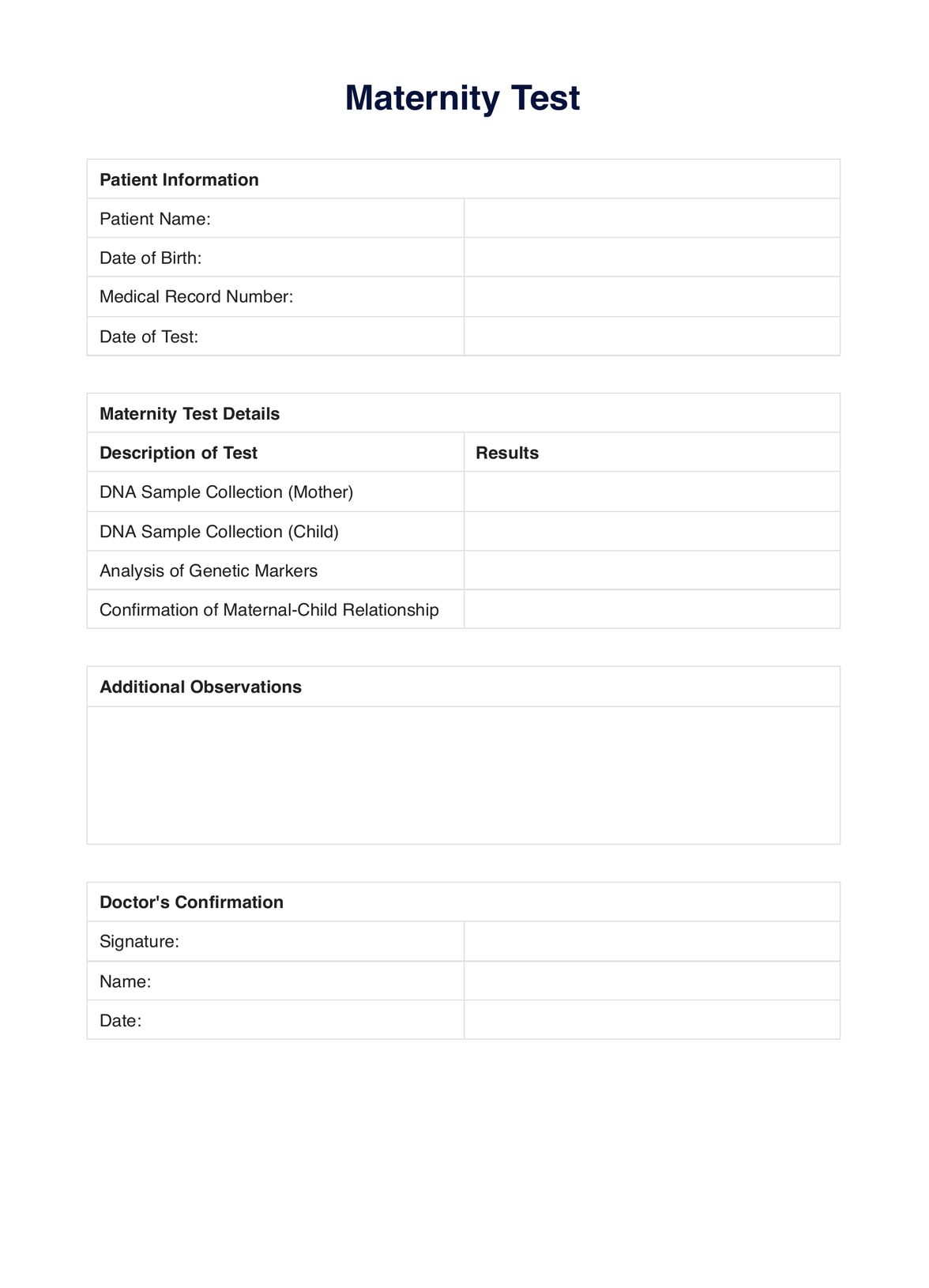A maternity test kit is a DNA test kit used to confirm the biological relationship between a biological mother and her child. It involves analyzing genetic markers from both individuals to establish a maternal link.

Maternity Test
Explore our comprehensive guide on Maternity Tests, offering insights into DNA testing for establishing maternal-child relationships.
Maternity Test Template
Commonly asked questions
Carepatron enhances maternity care by providing tools like an online patient portal for easy access to health records and a telehealth platform for convenient remote consultations, ensuring continuous and comprehensive care.
Telehealth is important in maternity care as it allows for regular monitoring and consultation without physical travel, which can be crucial for expectant mothers. It ensures continuous care and support throughout the pregnancy, enhancing safety and convenience.
EHR and practice management software
Get started for free
*No credit card required
Free
$0/usd
Unlimited clients
Telehealth
1GB of storage
Client portal text
Automated billing and online payments











